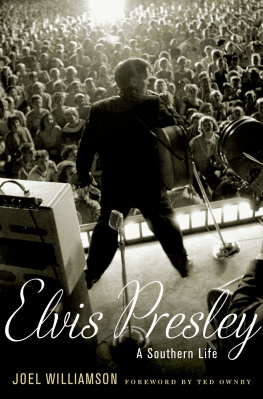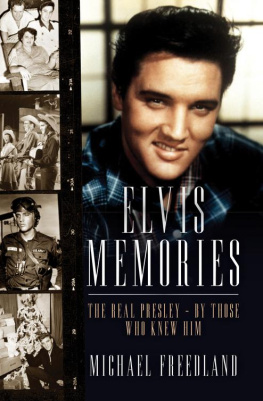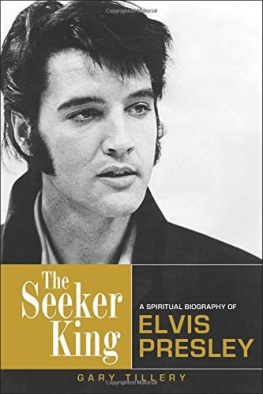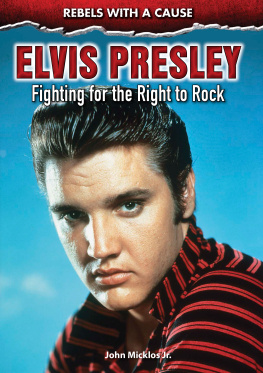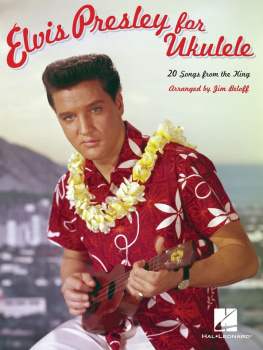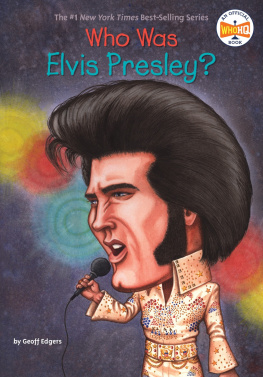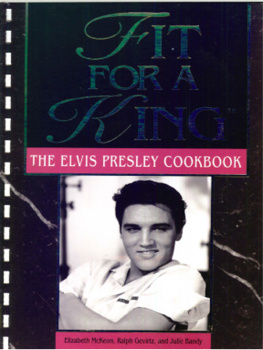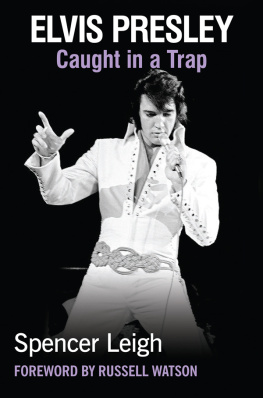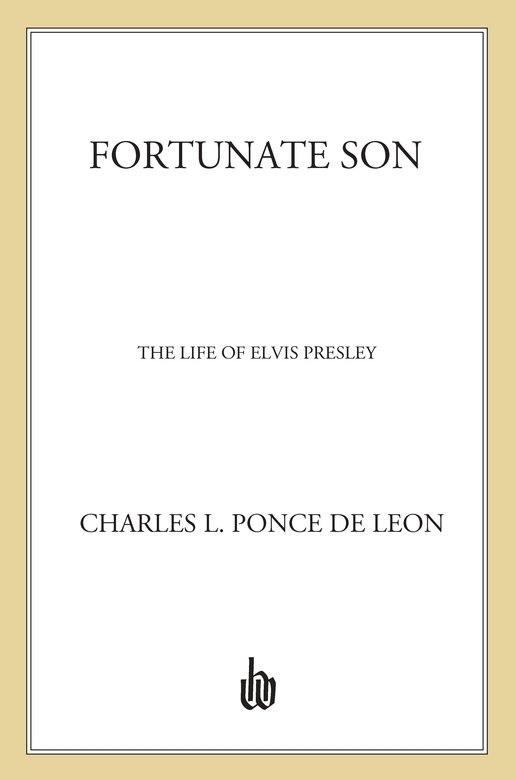THIS BOOK IS a work of synthesis, and in the course of writing it I have relied on countless books, articles, and critical essays written about Elvis Presley over the past fifty years. Indeed, I have been fortunate to have been able to draw on recently published works that are exceedingly reliable, insightful, and thought-provoking. They have been crucial in enabling me to understand Presley and present his story in a coherent form. Peter Guralnicks two-volume biography is a masterpiece from which I have drawn extensively, and I would urge anyone interested in the details of Elviss life to read it. A work of prodigious research, it will remain the definitive account for years to come. I have also learned a great deal from Michael T. Bertrand and Erika Doss, who have written smart, incisive books on Elviss social and cultural impact. Pete Daniels pathbreaking work on the American South has also had a tremendous influence on me, revealing ways in which I could link Presleys story to the main currents of U.S. history. I have drawn from the work of many other scholars as well, and I am grateful to all of them for having done the essential spadework that allowed me to produce a book of this kind: an interpretive biography that seeks to place Elvis in context, to connect the life to the times.
I am also grateful to Greil Marcus, Dave Marsh, Lester Bangs, andthe other rock critics that I avidly read as a teenager and college student. I was never an Elvis fan during his lifetime, but their writing about him convinced me of his importance, and when I went to graduate school in the mid-1980s, I remained interested in the largely unexplored connections between rock music and the major themes of American history. Writing this book provided me with an excuse to think more systematically about these connections and tell Presleys story in a way that also allows the reader to learn something about the South, race relations, working-class culture, popular culture, show business, and celebrity.
I also owe a debt of gratitude to my family, who were very patient with me while I was conducting research and writing. The warm, supportive atmosphere they provided made it much easier for me to see this project to its completion, and I hope that my children, Caroline and Christopher, will not only read the book but also feel as though they contributed to it in their own way. At the very least, I hope they have fond memories later in life when they are channel surfing and happen upon an Elvis movie, or when Christopher, already a discerning rock fan at age ten, hears a song from The Sun Sessions on his iPod or the radio. My wife, Lynn, was her usual steadfast self, always thinking about how she could be of assistance, even while attending to her myriad professional responsibilities. The importance of such support should not be underestimated. My parents also deserve thanks for introducing me to the joys of music, which always filled our home when I was youngand for putting up with me when my tastes ran to the likes of the Clash and the Sex Pistols.
I must also acknowledge my friends and colleagues at Purchase College, who helped to create a vibrant, nurturing professional environment for me. Purchase has been an ideal place for my development as an intellectual, and I cant imagine having written this book had I not come here eleven years ago. My colleagues in the School of Humanities have been especially supportive and interested, and I want to extend special thanks to Michelle Stewart, Nina Straus, Casey Haskins, Elise Lemire, Aviva Taubenfeld, Alfred Hunt, Frank Farrell, Lee Schlesinger, and Gari LaGuardia for offering suggestions and enduring conversationswith me about Elvis or issues related to the book. The administration and staff have been equally encouraging, offering me opportunities to discuss my work with faculty colleagues, alumni, and students and publicizing my professional activities to the community at large. I also benefited from often lengthy conversations about Elvis and rock music in general with friends, including Carl Potts, Michael Fields, Michael Hodes, Andy Martino, Steve Canino, and Zachary Daly. My students at Purchase have also been an inspiration to me. Their curiosity and abiding interest in music and popular culture have reaffirmed my own interest in these subjects and convinced me of the merits of taking them seriously.
Louis P. Masur was the person who encouraged me to undertake this project, and I want to thank him for giving me this opportunity and for recognizing my potential to write a book in a more popular vein. I can only hope it meets his expectations. At Hill and Wang, June Kim has been wonderful, the quintessence of courtesy and efficiency. Susan Sherwood and the staff at Graceland and Elvis Presley Enterprises were also very cooperative and professional. My biggest thanks, however, must go to my editor, Thomas LeBien. Thomas has been an absolute joy to work with, and his input and editorial suggestions have been extremely helpful every step of the way. In the course of my research, I learned a lot about Elvis, but it was Thomass gentle yet insistent prodding that finally allowed me to figure out what I wanted to say. If this book makes sense and inspires readers to better understand Elvis, Thomas deserves much of the credit. For any shortcomings I will happily accept the blame.




